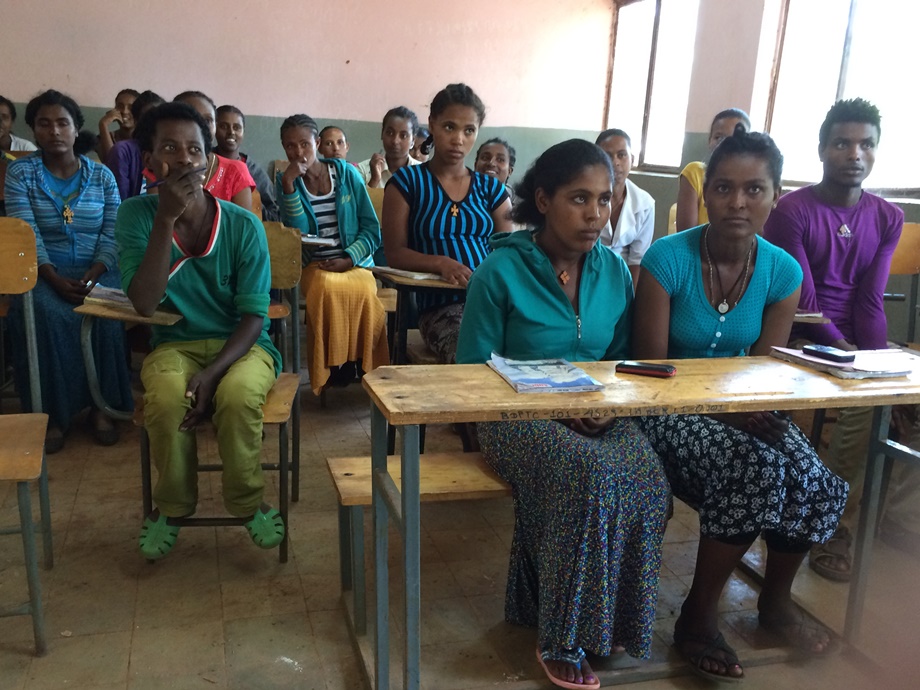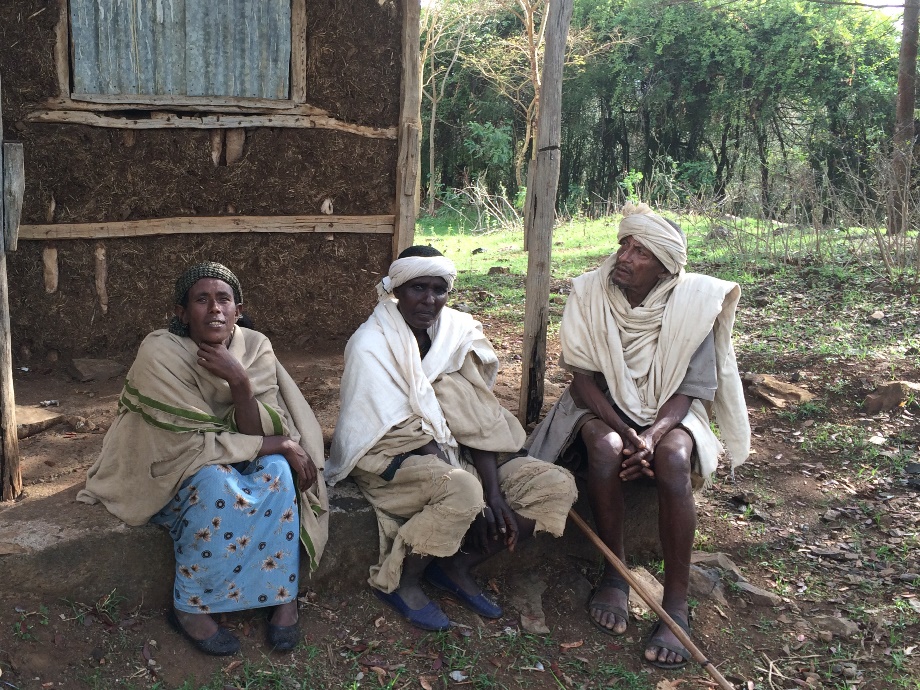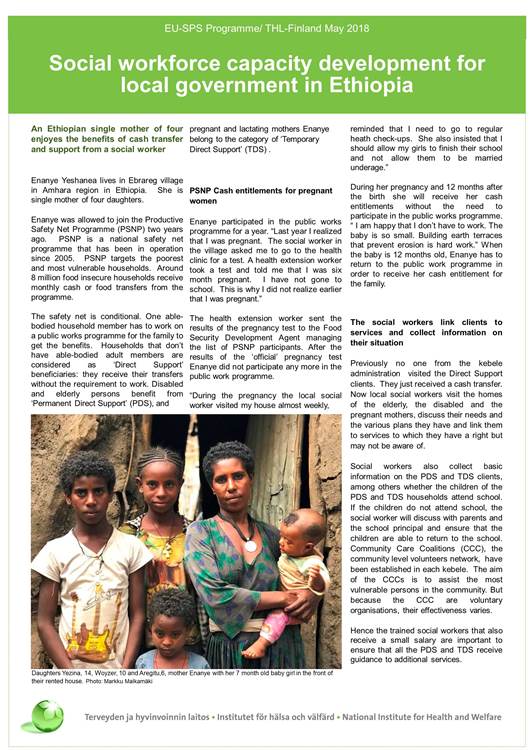EU-SPS Capacity Development Work in Ethiopia
Social workforce capacity development: enhancing the capacity of the local government social workers
The focus for the EU-SPS Finland's work in Ethiopia was on social workforce capacity development for local government social workers in cooperation with UNICEF. This work included the definition of occupational standards, developing the curricula and piloting of cross-sectoral team work in the Amhara region.
Context
The Ethiopian Ministry of Labour and Social Affairs (MoLSA) has recently been designated to lead and implement the Permanent Direct Support (PDS) component of the Productive Safety Net Programme (PSNP). The PDS supports the poorest and most vulnerable households including older and disabled persons and pregnant and lactating mothers. It accounts for up to 20% of the caseload of both the urban and rural safety net programs of Ethiopia. This new responsibility requires MoLSA to develop its social work force rapidly at regional, local (woreda) and community (kebele) levels.
EU-SPS/Finland and UNICEF agreed to support MoLSA in this effort. In addition, the work aimed at strengthening the regional Bureaus of Labour and Social Affairs (BOLSAs) to implement social protection pilot interventions.
Purpose
The purpose was to support the Government of Ethiopia to develop its labour and social service workforce (SSW) under MoLSA and BOLSAs, including:
- an assessment of the existing social services workforce
- an identification of the various social work occupations to be standardized
- an evaluation of the capacity of training and certifying institutions for lower level occupations
Additionally, this work also sought to generate evidence to support investments into the workforce by demonstrating the additional value that para-social workers can bring to people at the most local levels of government.
Facilitating deployment, training, coaching and continuous monitoring the project builds the capacity of these key frontline workers in the implementation of the Direct Support (DS) component of PSNP. It also showcases the positive results these workers can bring into the sector. The documented evidence will be used to advocate for creation of regular jobs within the government structures.
The Ethiopian Social Protection strategy notes that there should be at least one social worker in each kebele. This would mean around 30000 new social workers at the kebele level alone. However, there is no national consensus that social workers are needed, unlike in the case of health extension workers or school teachers. Hence the aim of the Amhara pilot is to develop a model that can be then scaled up.

Results Achieved thus far
Stakeholders’ participation in labour and social workforce assessment completed in five regions (Addis Ababa, Amhara, Gambella, Oromia, and Somali) and at Federal level
The EU-SPS/Finland focused on supporting a participatory process through regional and national workshops that bring together various sectors that contribute to and benefit from labour and social workforce development.
From November 2016 to March 2017 five regional consultative/validation workshops were held in five regions: Addis Ababa, Amhara, Gambella, Oromia, and Somali. Discussions were held among a wide range of sectors from labour and social affairs, women and children’s affairs, health, HIV/ADIS control, education, justice, and food security and so forth. Feedback and recommendations from the participants of these workshops were consolidated into the national labour and social service workforce assessment report.
The national social service workforce assessment culminated in a national consultative workshop held 17-18 May 2017. The workshop brought together 60 participants from MoLSA, Ministry of Women and Children Affairs and the Federal Technical, Vocational Education and Training Agency (TVET), and presented the findings of the assessment. New key question in the discussions was, what kinds of professionals would the country need to effectively implement the National Social Protection Policy and Strategy. New social sector occupations were identified and revisions were proposed for the occupational standards of the existing occupations.
As a result, a proposal to develop 18 different occupations with different competence requirements, but all relevant for social protection was deliberated on and agreed to, including e.g. officers and social case workers for occupational health and safety, social security, youth rehabilitation, school social work, relief work, street outreach work, child protection, child day care workers, elderly care, disability, substance misuse and addictions, mental health, social housing and community service management and volunteer coordination.
In addition, MoLSA and TVET prepared concrete plans to prioritize between these professions in the development of occupation standards.
Occupation standards developed for selected occupations of the labour and social service sector
Following submission of the revised labour and social services workforce assessment report, technical experts of MoLSA, UNICEF and the Federal TVET Agency have met several times to prepare a detailed plan for development of the occupation standards. Standards for the remaining occupations will be developed in 2018.
With support from the EU-SPS, a Technical Coordinator has been hired and assigned to MoLSA. The Technical Assistant played a crucial role in planning and facilitating the national consultative workshop held in May 2017, and continues to support planning of meetings and workshops through which the occupation standards will be developed. He also coordinates the National Social Protection Platform.
Pilot in Amhara region: Enhancing the role of para-social workers in multi-sectoral team work at the most local levels of the government system
Through a pilot in Amhara region, the EU-SPS strengthens the capacities of the federal (MoLSA) and regional (BoLSA) social and labour authorities social protection activities in selected woredas and kebeles of the Amhara region.
The pilot, implemented together with UNICEF, introduces and guides social workers into multi-sectoral teams working together with agricultural and health extension officers at the woreda and kebele levels. The pilot develops a system to enhance clients’ access to basic services through a comprehensive referral and case management system based on a systematic information management system, and a coordination mechanism.
The main focus of the capacity building activities is to ensure the timely deployment of para-social workers and the training of key frontline workers – social workers, (food security) development agents, and health extension workers. Frontline workers have an important role in facilitating the delivery of social protection services and linking social services to vulnerable households who are also PSNP clients.
The project has supported the deployment and training of 40 para-social workers and the training of 18 Development Agents, 20 Health Extension Workers and 27 PSNP experts. The training is key in building capacity of frontline workers and their supervisors for the implementation of the new ‘links to social services’ component of the Productive Safety Net Programme (PSNP IV). The component seeks to improve the access to basic services in health, nutrition and education, and specialized services in child protection for the most vulnerable PSNP clients, including pregnant and lactating women, households headed by the elderly, persons living with disabilities and child headed households.
Further, in the ‘links to social services’ approach, the trained frontline workers establish and manage the follow-up and monitoring system to track and report on clients’ access to social services. The aim for the EU-SPS/Finland’s work in Ethiopia is to improve PSNP clients’ access to social services in two woredas of Amhara region but also to contribute to the national evidence base on the role of the social service workforce (SSW), particularly the frontline workers, to enable robust advocacy for SSW development in the country.

More information and contact
For more information on the EU-SPS capacity work in Ethiopia, please contact Markku Malkamäki (markku.malkamaki(a)thl.fi).





